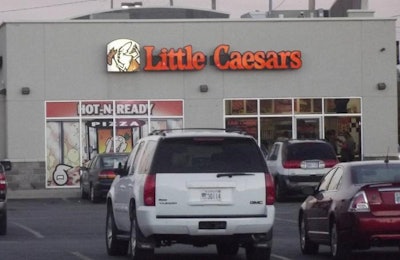
Perhaps now more than ever, restaurant chains are having more of an influence on how U.S. farmers raise poultry and livestock.
In a recently released report, American Customer Satisfaction Index (ACSI), revealed that for the first time ever, Americans are spending more money eating out than on groceries. With that in mind, it’s worth watching which restaurant chains are hot and which are not, as well as which ones are responding to pressures to adopt stricter policies on antibiotic use.
What are the most popular restaurants?
The ACSI Restaurant Report 2016 showed that overall customer satisfaction with quick service restaurants (QSRs) was up 2.6 percent to 79 percent when compared to the previous year.
Using data from interviews with roughly 70,000 consumers, restaurants were rated on accuracy of food order, layout and cleanliness, company website, speed, waitstaff courtesy, food quality, food variety, beverage quality and beverage variety.
Among the largest QSR chains in the U.S., Chick-fil-A ranked highest with an 87 percent satisfaction rate. It was followed by Papa John’s, 82 percent; Little Caesars and Panera Bread, 81 percent; and Arby’s, Dunkin’ Donuts and Subway, each with 80 percent. Those rated below 80 percent were Chipotle Mexican Grill, Domino’s, KFC, Pizza Hut, Burger King, Wendy’s, Starbucks, Taco Bell, Jack in the Box and McDonald’s. Lumping the smaller chains into “All others,” those restaurants were given an 81 percent approval rating.
Top-rated restaurants and animal antibiotics
While ACSI apparently did not ask consumers to rate the restaurants on their policies concerning animal antibiotic use, I found it worth examining. Businesses are likely to look at what their competition is doing, and a fair number of these chains have adopted some sort of policy on antibiotic use.
Chick-fil-A in 2014 announced that it would commit to a 100 percent “raised without antibiotics” standard for its chicken. In making the announcement, the company said it would make the transition within five years.
No. 2 rated QSR Papa John’s revealed in December 2015 that the chicken used as pizza toppings and in its chicken poppers would come from birds never treated with antibiotics. It announced it would complete the transition this summer.
In a tie for third on the list in terms of customer satisfaction are Panera Bread and Little Caesars. Panera Bread was one of the first restaurant chains to adopt a strict antibiotic policy. Panera Bread started serving chicken raised without antibiotics more than 10 years ago, and in 2014 reported that all the chicken served there was raised with no antibiotics. At the same time, the company reported that nearly all of the turkey and pork it served was also raised without the use of antibiotics.
To date, Little Caesars has not revealed any policies on animal antibiotic use.
In a three-way tie for fifth are Subway, Dunkin’ Donuts and Arby’s.
Subway announced an ambitious antibiotics policy last year, where it would eventually phase out the use of all antibiotics in the chicken, turkey, pork and beef it served. Subway’s entire chicken supply was to be from antibiotic-free operations by the end of 2016, with its turkey supply following in 2018 or 2019, and the pork and beef supply fully making the transition by 2025.
Dunkin’ Donuts, in its animal welfare policy that was updated in December 2015, stated that its suppliers should only use antibiotics for the control and treatment of disease.
Arby’s has not released a policy on animal antibiotic use.
It’s also worth noting that a number of the lower rated but still large restaurant chains have policies of varying levels regarding animal antibiotic use, including Chipotle, McDonald’s, Pizza Hut, Taco Bell, and Wendy’s.
We can expect more chains to play the game of follow the leader and adopt policies concerning animal antibiotic use. But exactly who will play and which leaders they will follow remains worth watching.


















